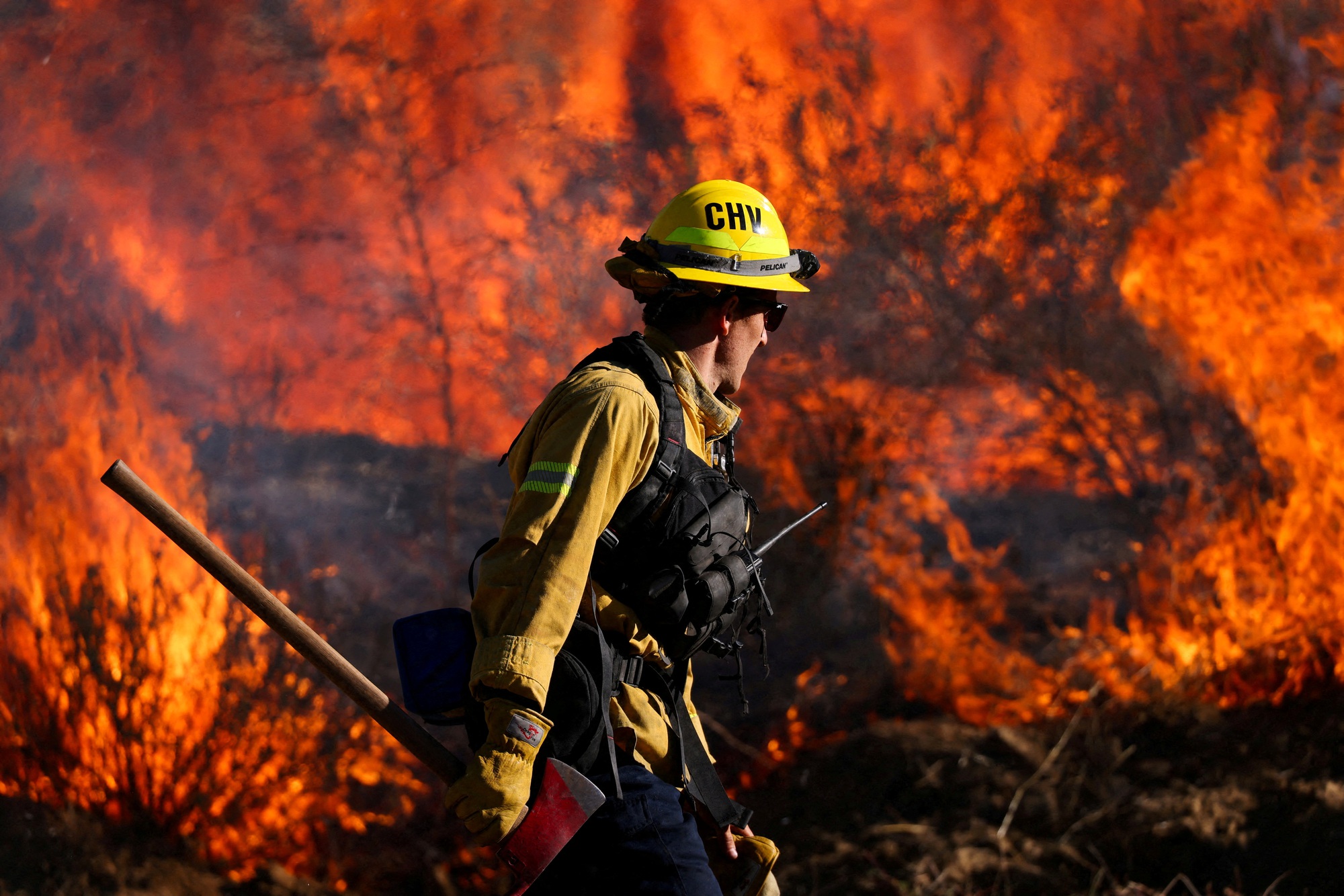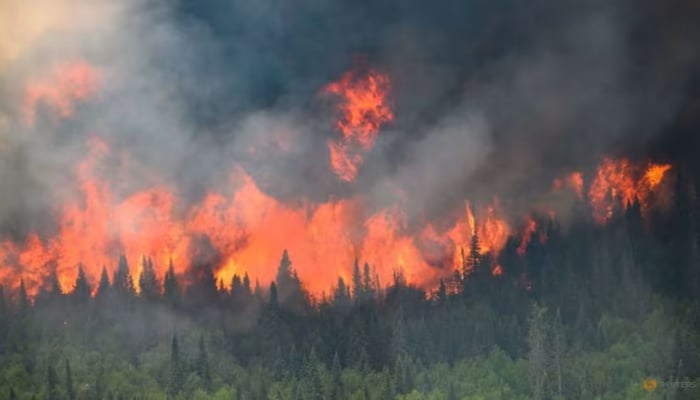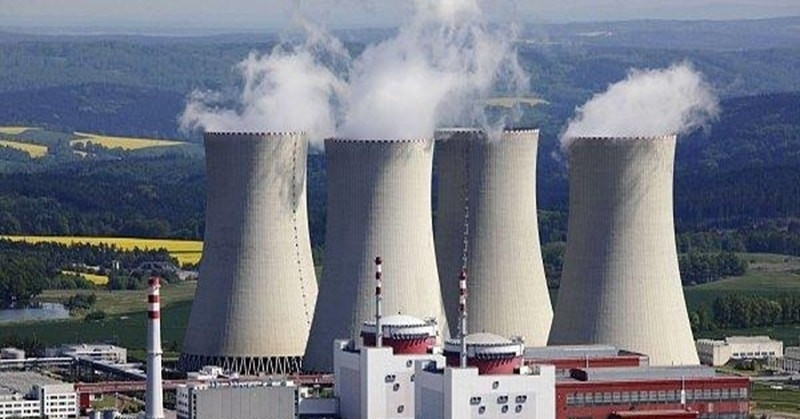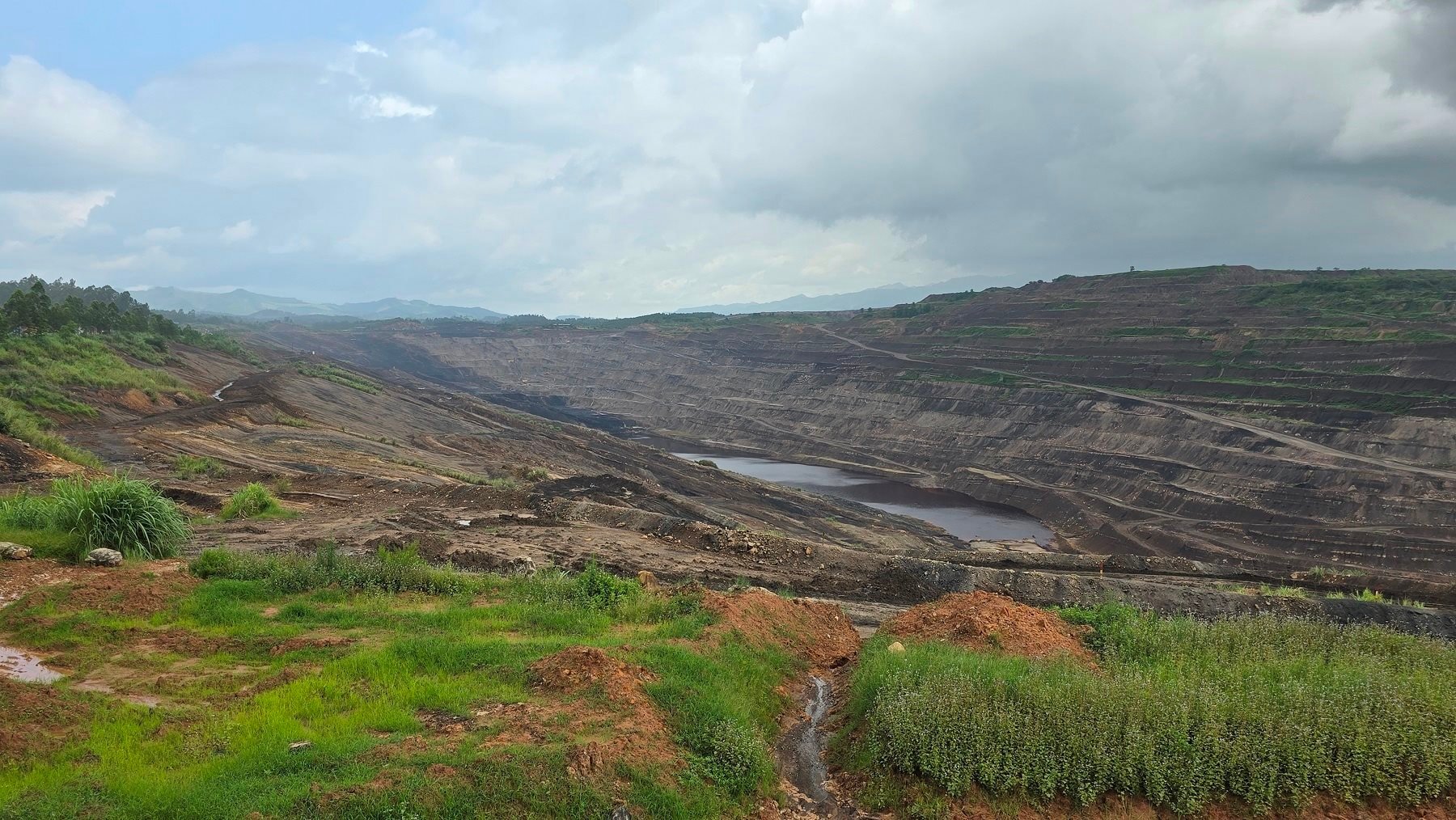The United Nations' World Meteorological Organization (WMO) has warned that 2023 has broken a series of climate records and extreme weather has left a "trail of devastation and despair", according to AFP.
"The broken records have created a deafening cacophony... Record greenhouse gas levels. Record global temperatures. Record sea levels. Record low sea ice in Antarctica," AFP quoted WMO Director Petteri Taalas as saying.

Firefighters try to extinguish a wildfire in California (USA) in October.
The WMO released the provisional version of its State of the Global Climate 2023 report as world leaders gathered in Dubai for the United Nations COP28 climate conference, amid growing pressure to reduce greenhouse gas emissions.
UN Secretary-General Antonio Guterres said the findings of record temperatures "should send shivers down the spines of world leaders".
The stakes have never been higher as scientists warn that the ability to contain global warming to manageable levels is slipping away from human reach.
The 2015 Paris climate agreement aims to limit global temperature rise to no more than 2 degrees Celsius above pre-industrial levels – and 1.5 degrees Celsius if possible.
But in its report, the WMO said data for 2023 through the end of October showed that average temperatures this year were about 1.4 degrees Celsius above the pre-industrial baseline.
The report also found that the past nine years have been the warmest since modern records began.
“These are not just statistics,” said Mr Taalas, warning that “we risk losing the race to save glaciers and curb sea level rise”.
“We cannot go back to the climate of the 20th century, but we must act now to limit the risks of increasingly severe climate change in this century and the centuries to come,” he said.
WMO expects to publish the final version of the State of the Global Climate 2023 report in the first half of 2024.
Meanwhile, Mr. Guterres called on leaders gathering in Dubai to commit to strong measures to curb climate change, including phasing out fossil fuels and tripling renewable energy production.
Source link




































![[Photo] Prime Minister Pham Minh Chinh chairs Government Conference with localities on economic growth](https://vstatic.vietnam.vn/vietnam/resource/IMAGE/2025/2/21/f34583484f2643a2a2b72168a0d64baa)

























































Comment (0)